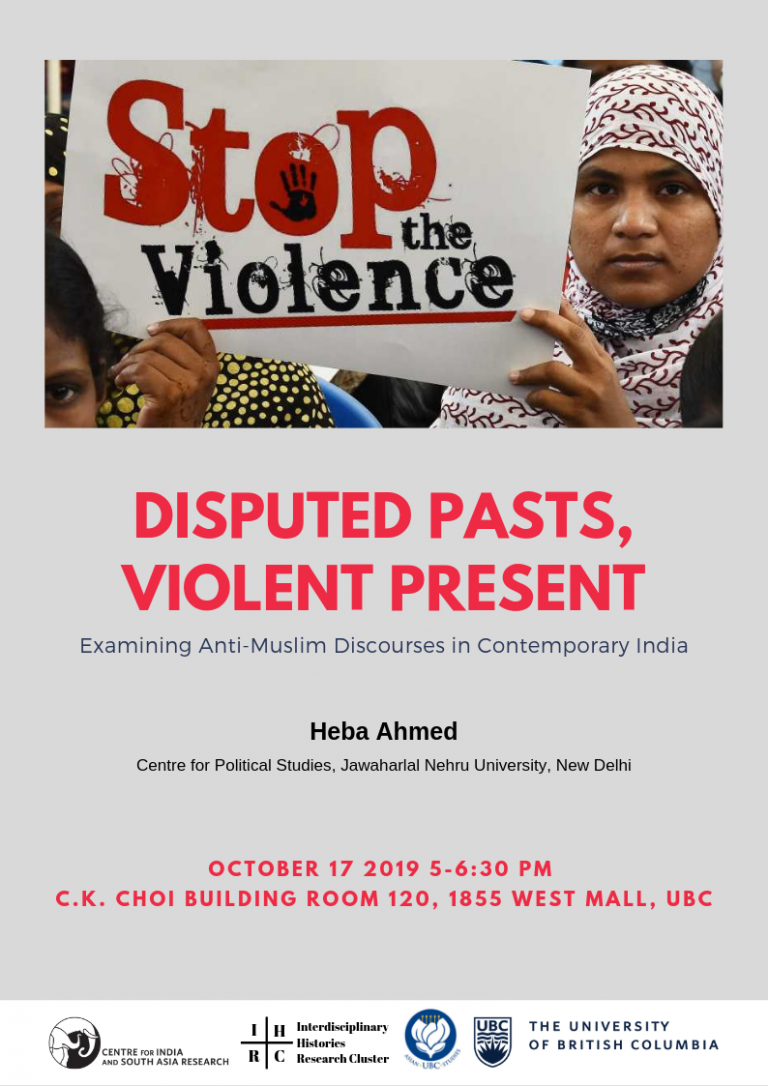This event is in collaboration with the Interdisciplinary Histories Research Cluster, and the Department of Asian Studies.
Abstract
Since the 2014 formation of the central government by the Bharatiya Janata Party
(BJP) in India, violence against minorities has increased significantly. Of particular note is
the violence against Indian Muslims, the largest religious minority in India. Databases
compiled by different civil society organisations¹ have documented incidents of Muslims
being lynched to death, mostly on accusations of cow slaughter or petty theft. This talk will
examine the discourse of anti-Muslim violence in contemporary India, and attempt to answer
why hate crimes against Muslims are rising with little to negligible public indignation.
Violence against Muslims in India today will be interrogated vis-à-vis India’s anti-
colonial/postcolonial pasts, which witnessed militant ‘cow protection movements’ in which
the beef-eating Indian Muslim was identified as the chief antagonist. Indian Muslims have
also been burdened with the guilt of the Partition of India. The cumulative effect of these
disputed pasts is that in the present, Muslims can hardly take legal recourse against the hate
crimes committed against them without being further victimised. This has led to Indian
Muslims existing under conditions of what Judith Butler has called “precarious life” (2004).
¹‘Hate Crime: Cow-related violence in India’, available at https://lynch.factchecker.in/,
‘DOTO: Documentation of the Oppressed’, available at https://www.dotodatabase.com/.
Presenter
Heba Ahmed is an emerging scholar whose work addresses the violence against Muslims in the state of Gujarat in 2002 (and in particular efforts to commemorate the violence).
